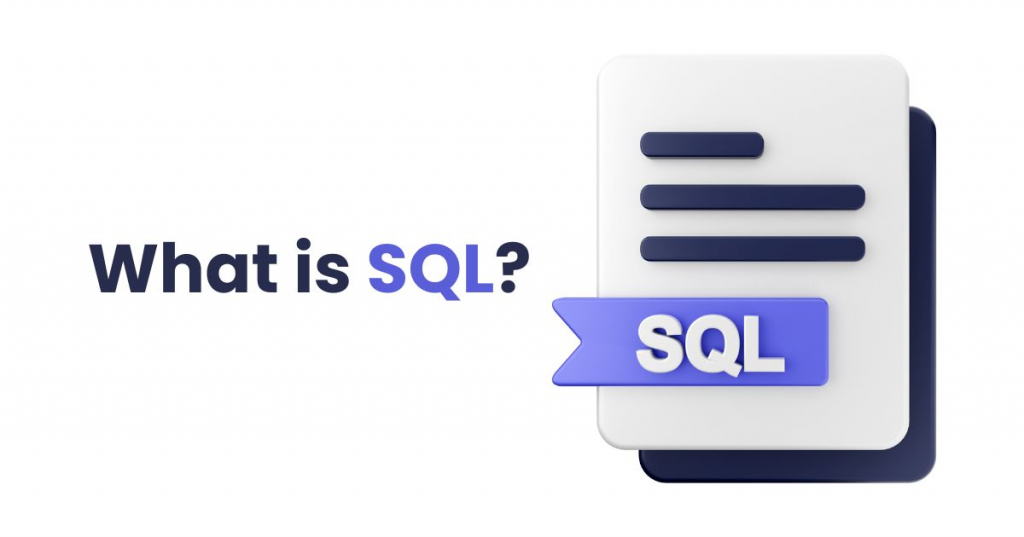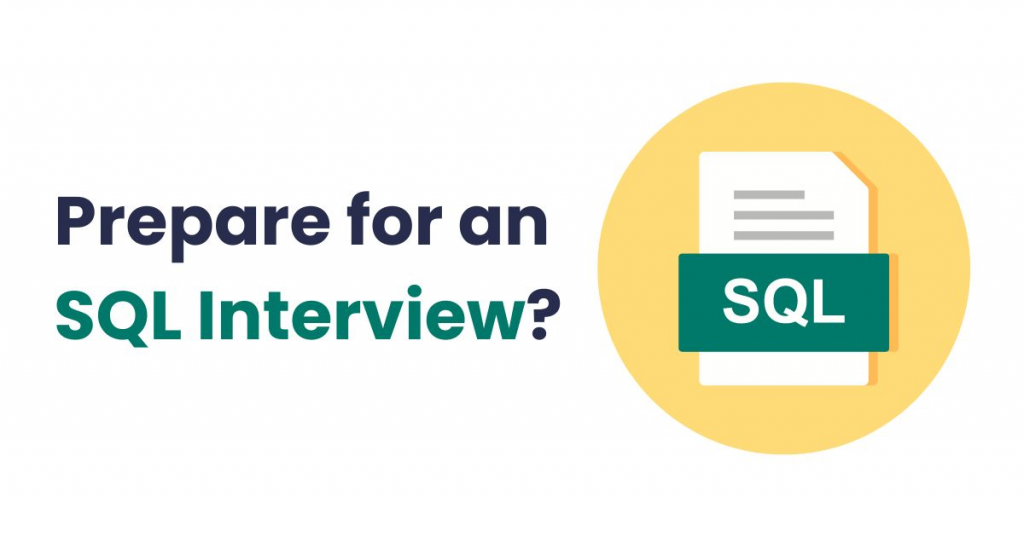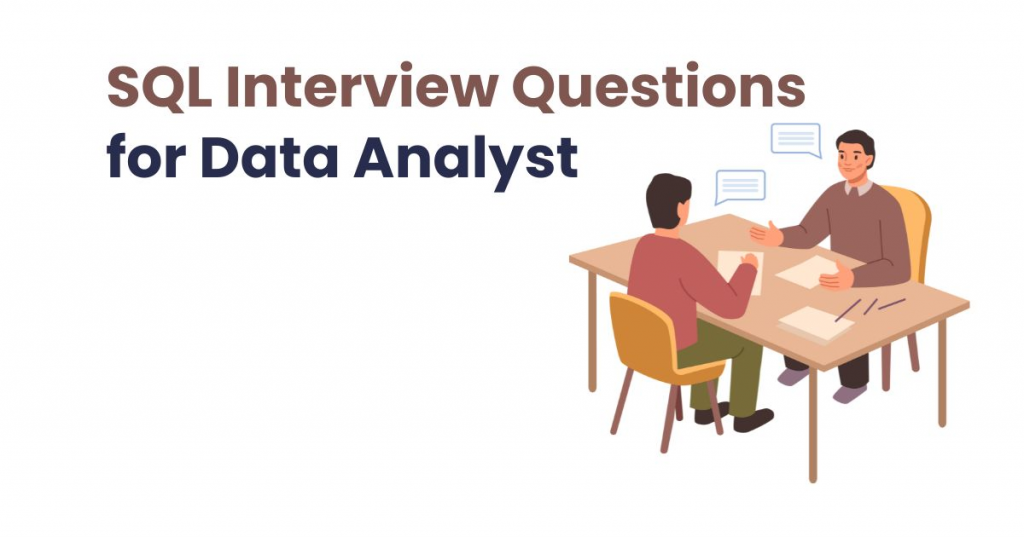SQL Interview Questions for Fresher and Experienced
Preparing for an SQL interview? Whether you're just starting your data career or leveling up your skills, this guide by SkillTrans covers the essential tips & questions you need to know to impress hiring managers in an SQL Interview!
What is SQL?

SQL (Structured Query Language) is the backbone of modern data management. It's a domain-specific language designed for interacting with relational databases like MySQL, PostgreSQL, Oracle, and SQL Server.
SQL commands (queries) let you perform tasks such as:
Selecting specific data based on criteria.
Inserting new records into a table.
Updating existing data.
Deleting unwanted records.
Creating new databases, tables, or relationships between data.
SQL is essential for data analysts, scientists, engineers, and anyone working with structured information.
More information about SQL: First developed SQL in the 1970s by IBM, it became an ANSI standard in 1986 and an ISO standard in 1987. Today, SQL is used to manage an estimated 90% of all enterprise data worldwide. Its widespread adoption is due to its readability, flexibility, and ability to handle large datasets efficiently.
How to Prepare for an SQL Interview?

Preparing for a SQL interview requires a solid foundation in SQL fundamentals.
Start by refreshing your knowledge of basic commands like SELECT, INSERT, UPDATE, DELETE, CREATE, ALTER, and DROP.
Make sure you have a firm grasp of DDL, DML, and DCL statements.
Additionally, it's crucial to understand different types of joins (INNER, LEFT, RIGHT, FULL, SELF) and when to apply them effectively.
To excel in SQL interviews, practice is paramount. Use online platforms like LeetCode, HackerRank, StrataScratch, and Mode Analytics to solve SQL problems of varying difficulty. These platforms offer a wide array of challenges that simulate real-world scenarios.
To further enhance your preparation, seek out datasets from sources like Kaggle or government websites and practice writing queries to answer business-related questions. This hands-on experience will not only solidify your understanding of SQL but also sharpen your problem-solving skills.
If you're targeting more senior positions, delve into advanced topics like query optimization, database design, transactions, and concurrency. Learn about indexing techniques, query execution plans, and how to troubleshoot slow-performing queries.
Familiarize yourself with concepts like normalization, data modeling, and schema design to showcase your expertise in building efficient databases.
Additionally, understand the ACID properties of transactions, locking mechanisms, and isolation levels to demonstrate your knowledge of data integrity and consistency.
During the interview, always clarify the requirements before you begin writing a query. This ensures you're on the right track and can tailor your solution to the interviewer's expectations. As you solve problems, articulate your thought process to the interviewer. This helps them understand your approach and problem-solving abilities.
Write clean, well-structured code using proper indentation, comments, and meaningful aliases to make your queries easily readable. If possible, test your queries on a sample dataset to verify their accuracy.
Finally, approach the interview with confidence, showcasing your passion for SQL and your ability to apply it to real-world data challenges.
SQL Interview Questions for Freshers

Here are 20 SQL interview questions tailored for freshers, ranging from basic concepts to slightly more advanced topics:
Basic Concepts
Here are great questions to cover the foundational concepts of SQL:
What is SQL, and what is it used for?
Explain the difference between a database and a table.
What are the main types of SQL commands (DDL, DML, DCL)?
Define and give examples of primary keys and foreign keys.
What is the difference between WHERE and HAVING clauses?
SQL Queries
These are SQL query questions for freshers in an interview:
Write a query to select all columns from a table named "employees."
Write a query to select employees whose salary is above $50,000.
Write a query to find the average salary of employees in each department.
Explain how to use the ORDER BY clause to sort results.
How do you join two tables together in a query?
Aggregate Functions
These questions on aggregate functions are indeed essential for an SQL interview. They cover both theoretical understanding and practical application, making them valuable for assessing a candidate's SQL proficiency:
What are aggregate functions, and why are they useful?
List some common aggregate functions (e.g., SUM, COUNT, AVG).
Write a query to find the total number of employees in a company.
Write a query to find the highest and lowest salaries in a department.
Explain the difference between COUNT(*) and COUNT(column_name).
Additional Concepts
These additional concepts are valuable additions to any SQL interview preparation guide:
What is a subquery, and how can it be used?
Explain the difference between UNION and UNION ALL.
What are indexes, and how do they improve query performance?
What is normalization, and why is it important in database design?
Describe the ACID properties of database transactions.
SQL Interview Questions for Experienced

Here are 20 SQL interview questions geared towards experienced professionals, focusing on advanced topics and scenarios you might encounter on the job:
Advanced Queries & Optimization
These questions are for assessing an experienced SQL professional skills:
How would you optimize a slow-performing SQL query? (Discuss indexes, query rewriting, etc.)
Explain the differences between clustered and non-clustered indexes.
Describe how you would approach finding and fixing a deadlock in a database.
Write a query to find the Nth highest salary in an "employees" table.
What are window functions, and provide examples of their use cases.
Database Design & Normalization
These questions on database design and normalization are essential for experienced SQL professionals:
Explain the different normalization forms (1NF, 2NF, 3NF, BCNF).
Design a database schema for an e-commerce platform (tables, relationships).
Discuss denormalization and when it might be appropriate.
How would you implement a many-to-many relationship in a database?
What are the advantages and disadvantages of using surrogate keys?
Transactions & Concurrency
These questions are choices for assessing a candidate's knowledge of transactions and concurrency in an SQL interview:
Explain the ACID properties of database transactions.
Describe how optimistic and pessimistic locking work in a database.
What are isolation levels, and how do they affect concurrency?
How would you handle database transactions in a distributed system?
Explain the concept of a savepoint and its use in transactions.
Additional Topics
These additional topics are additions to an SQL interview preparation guide for experienced professionals. They delve into important aspects of database management and performance optimization, which are highly relevant in real-world scenarios:
Discuss the differences between OLTP and OLAP databases.
What are materialized views, and when would you use them?
Explain how you would implement a full-text search in a database.
How do you ensure data integrity in a database? (Constraints, triggers, etc.)
Describe the challenges and solutions for scaling a database.
SQL Interview Questions for Data Analyst

Here are 20 SQL interview questions specifically tailored for data analysts, covering a mix of practical scenarios and conceptual understanding:
Basic SQL & Queries
These questions assess a candidate's foundational knowledge of SQL, their ability to write basic queries, and their understanding of common data analysis tasks:
Explain the difference between INNER JOIN, LEFT JOIN, RIGHT JOIN, and FULL JOIN.
Write a query to select the top 10 customers with the highest total order value.
How would you find duplicate records in a table?
What is the difference between WHERE and HAVING?
Write a query to calculate the average sales per month for a specific product category.
Aggregate Functions & Grouping
Aggregate and grouping questions are great additions for data analysts preparing for SQL interviews. They delve deeper into data analysis and manipulation techniques that are crucial to extracting valuable insights from data sets:
Explain the use of GROUP BY and HAVING clauses.
Write a query to find the total revenue generated by each sales region.
How would you find the mode (most frequent value) of a particular column?
What are window functions, and provide examples of their use cases in data analysis.
Calculate the running total of sales over time for a specific product.
Data Cleaning & Manipulation
These are excellent SQL interview questions for data analysts, focusing on the critical area of data cleaning and manipulation:
Write a query to remove leading and trailing spaces from a text column.
How would you handle missing values in your analysis?
Explain the concept of data normalization and its importance in data analysis.
How would you pivot a table to summarize data in a different format?
Write a query to extract the month and year from a date column.
Case Studies & Problem Solving
These case studies and problem-solving questions are excellent additions to challenge data analyst candidates in an SQL interview:
You have a table with customer transactions. How would you identify customers who haven't made a purchase in the last 6 months?
Explain how you would analyze and interpret customer churn data.
You have sales data from multiple regions. How would you identify trends or outliers?
Design a database schema to store customer information, product details, and order history.
How would you use SQL to calculate customer lifetime value (CLTV)?
Conclusion
In conclusion, SQL is a powerful tool that can be used to manipulate and analyze data efficiently. Whether you're a fresher or an experienced professional, the SQL interview questions covered in this post will help you prepare for your next technical interview.
With a solid understanding of SQL concepts and the ability to solve problems logically, you'll be well-positioned to succeed in your SQL interviews and land your desired job.
Additionally, for those keen on learning SQL, SkillTrans offers a range of free and premium online courses. Explore our Online Learning Catalog to enhance your SQL skills before your interview!

Meet Hoang Duyen, an experienced SEO Specialist with a proven track record in driving organic growth and boosting online visibility. She has honed her skills in keyword research, on-page optimization, and technical SEO. Her expertise lies in crafting data-driven strategies that not only improve search engine rankings but also deliver tangible results for businesses.



